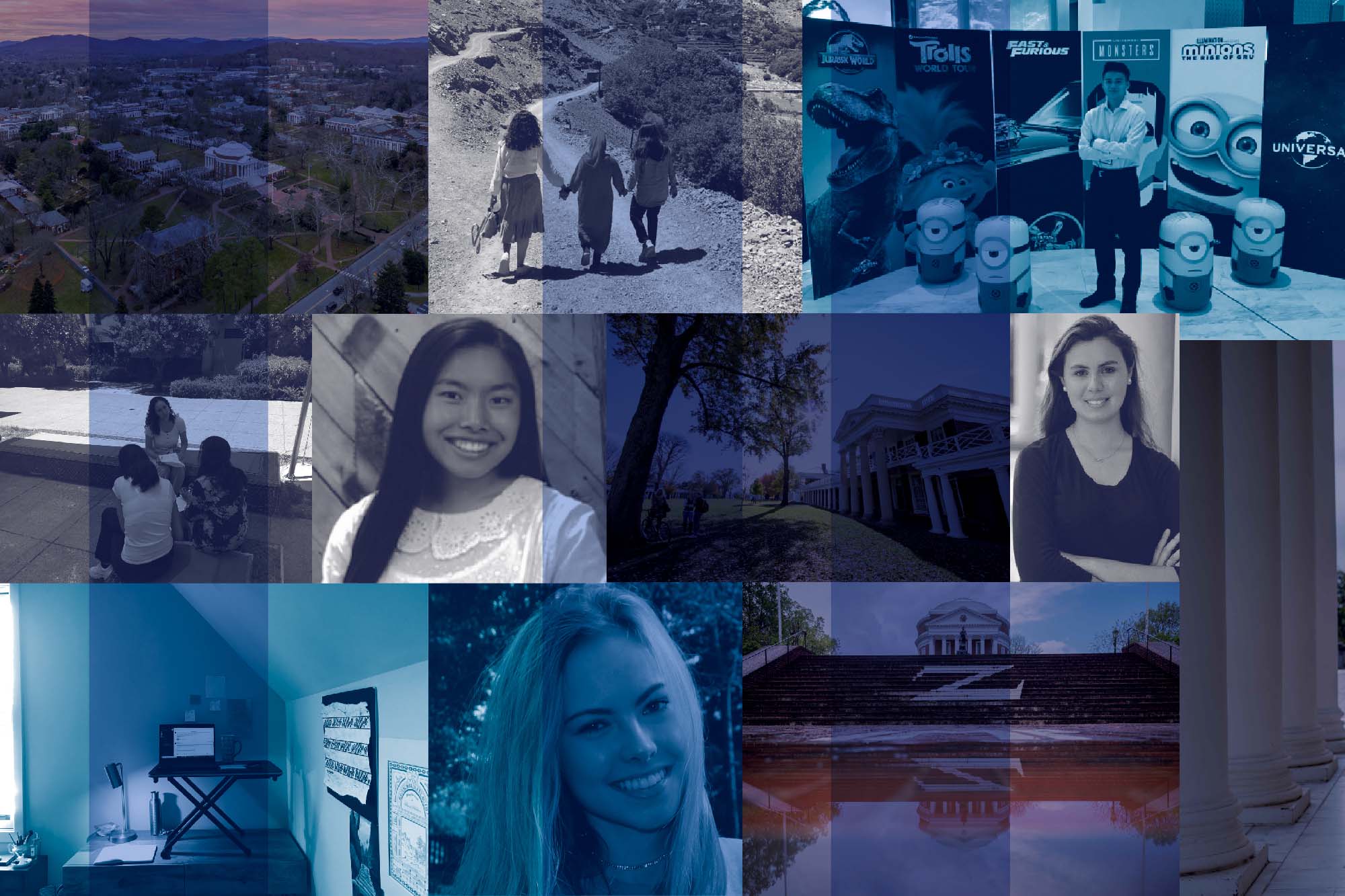Ingrid Hakala’s greatest satisfaction comes in the summer, when University of Virginia students take part in internships around the world. Hakala loves watching the students go outside their comfort zones, experience different cultures and gain real-world experience across a number of employment sectors.
That’s what made things so tough for Hakala, an alumna who serves as the director of UVA Global Internships, last March when University-related travel was halted due to the coronavirus.
At the time, Hakala wasn’t sure if it would be academically fruitful to attempt a “pivot” toward virtual internships. However, she quickly realized that there was a great deal about the world of remote work for students to explore, both personally and in relation to larger global trends.
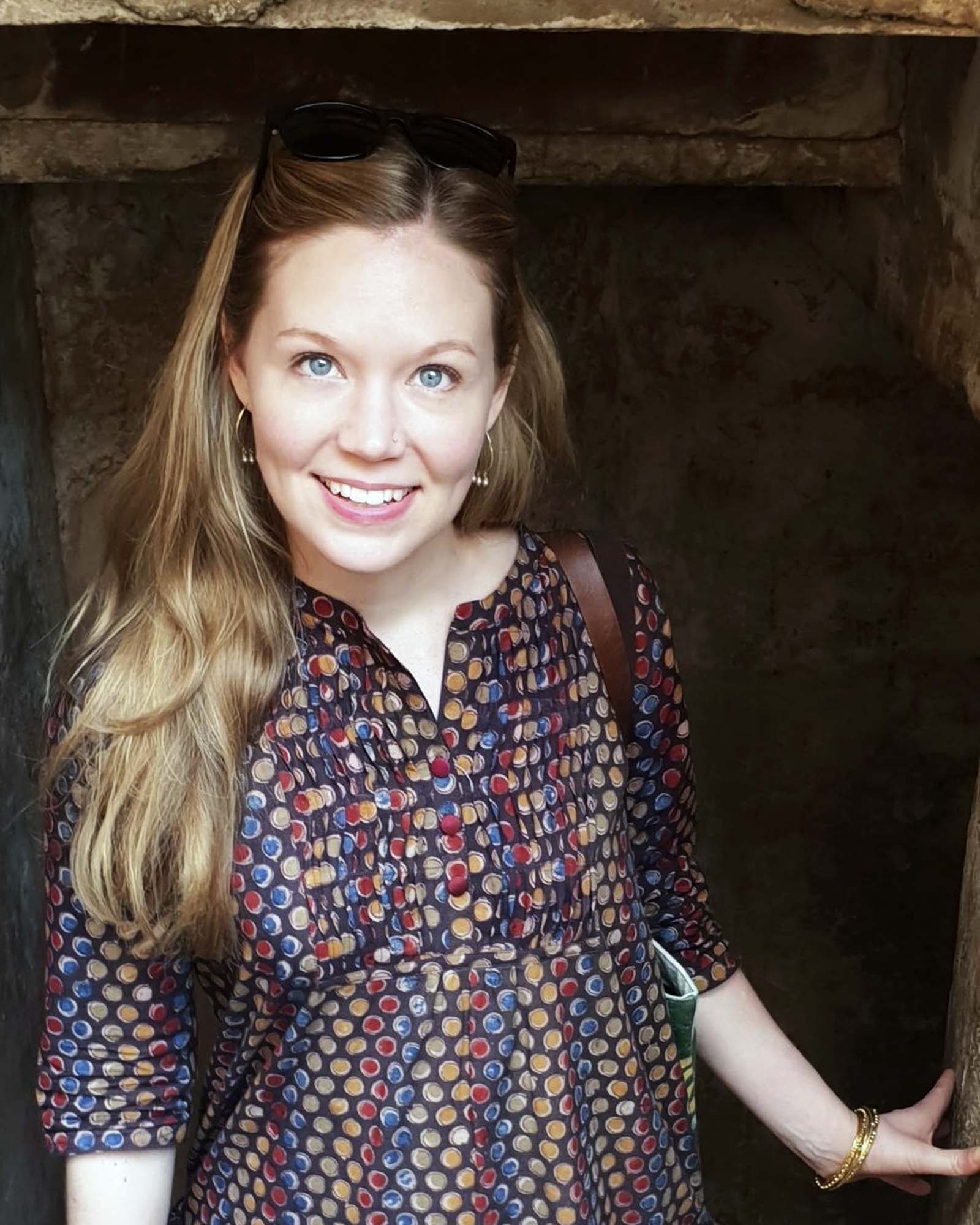
Hakala, the director of UVA Global Internships, said several students elected to continue their internships even after the program ended. (Contributed photo)
“Remote international work has been a feature of the professional worlds of academia, business and governments for decades, though perhaps unpracticed by most,” Hakala said. “Given recent trends, it is likely that large numbers of UVA graduates will engage in work on ‘virtual global teams’ within the first few years of their professional lives.”
In late July, a cohort of 14 students – a mix of rising second-, third- and fourth-years – concluded eight- to 10-week-long virtual internships with partner organizations (mainly non-profit companies) in India, Morocco, Thailand and Peru.
The internships weren’t exactly what the students had in mind prior to the pandemic, but in a way, they say that is why they wound up being such valuable experiences.
“Instead of maneuvering the streets of Bangkok to attend office meetings, I opened my laptop while sitting in bed at my home in Chicago,” said student Zachary Pasciak, who interned at Pacific Licensing Studio, a sustainable consumer product licensing business in Bangkok.
“I was in a time zone at least 12 hours behind all of the people I worked with. Our meetings began with a ‘Good evening!’ from them and a ‘Good morning!’ from me.”
Despite the long-distance challenge, Pasciak said he was able to grow personally and professionally.
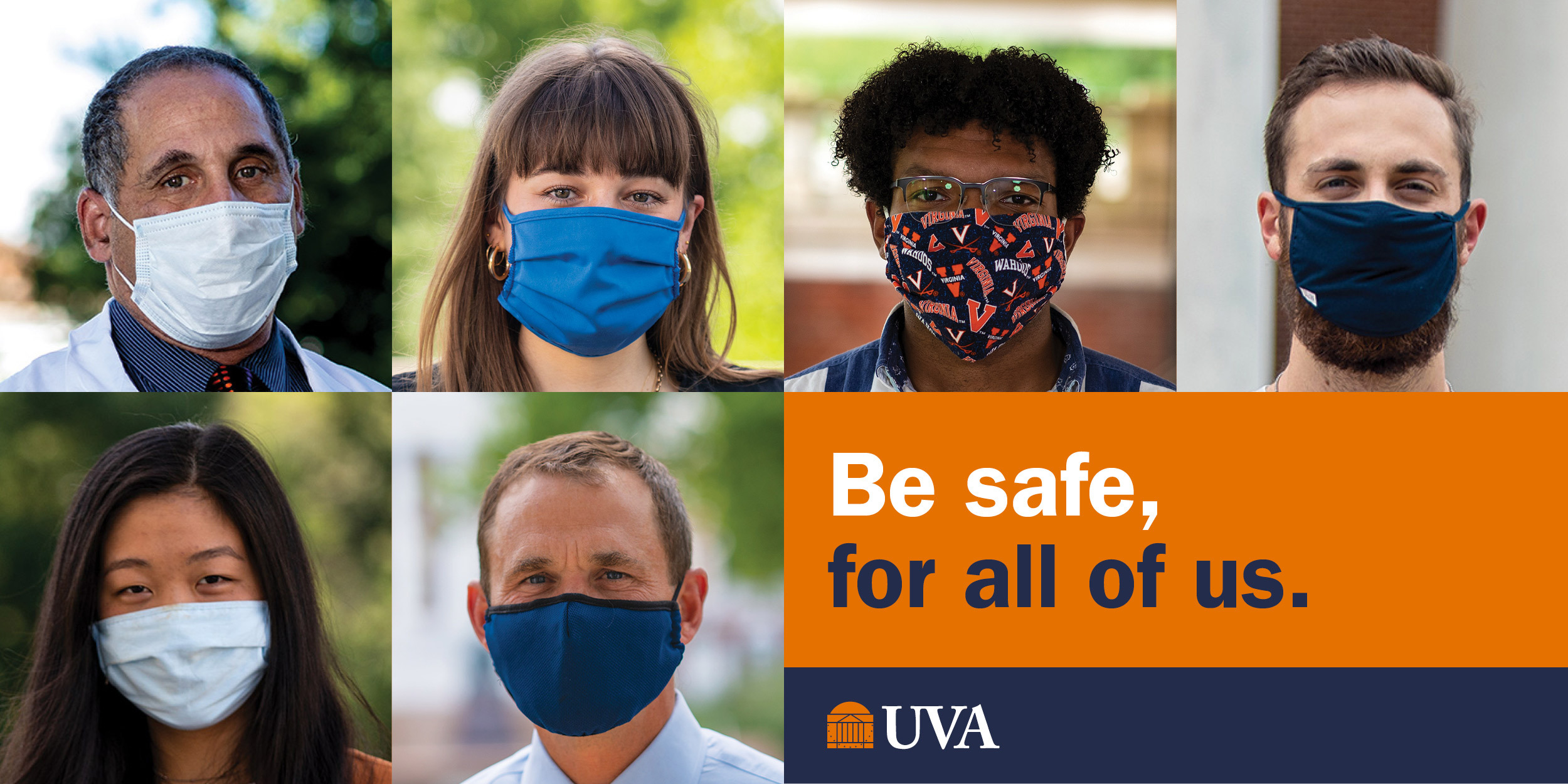
“The lack of immediate oversight enabled me to further strengthen skills in self-discipline, while the need for virtual meetings and email correspondence provided me with the ability to develop skills as a virtual employee – something that seems to be increasingly more important in the world we now live in,” Pasciak said.
“More importantly, though, I was able to immerse myself in a global experience all while remaining perfectly still. Without any traveling – without even leaving my bedroom – I was able to interact with colleagues who lived thousands of miles away.”
Anya Faruki interned at High Atlas Foundation, an organization in Marrakesh, Morocco, that advances human rights issues, such as women’s and youth empowerment, sustainable agriculture and health care.

Faruki interned at High Atlas Foundation, an organization in Morocco that advances human rights issues. (Contributed photo)
Faruki worked on a number of projects, including expanding employment opportunities for young girls in rural areas, drafting proposals to expand legal aid for human trafficking victims in Morocco, and developing a women’s empowerment workshop.
In the experience, she believes she gained transferable skills, such as intercultural communication, critical thinking, digital fluency, research analysis and collaboration.
“What I enjoyed most about my internship was the fact that open dialogue was encouraged,” Faruki said. “HAF held weekly hourlong meetings for us to participate in, and in that time, we always drew similarities and differences between the social and economic climate of the United States in comparison to that of Morocco. In this way, we were able to address inequities present in both countries, while also opening ourselves up to a new socio-cultural landscape.
“While adjusting to this virtual internship was a challenge at first, I came to embrace the experience, due to the fact that it humbled me as well as taught me to reflect more critically on current events.”
Tahi Wiggins interned at SEWA Bharat in New Delhi, a national federation of Self-Employed Women’s Association organizations. She called the experience “challenging, educational, intense and fulfilling.”
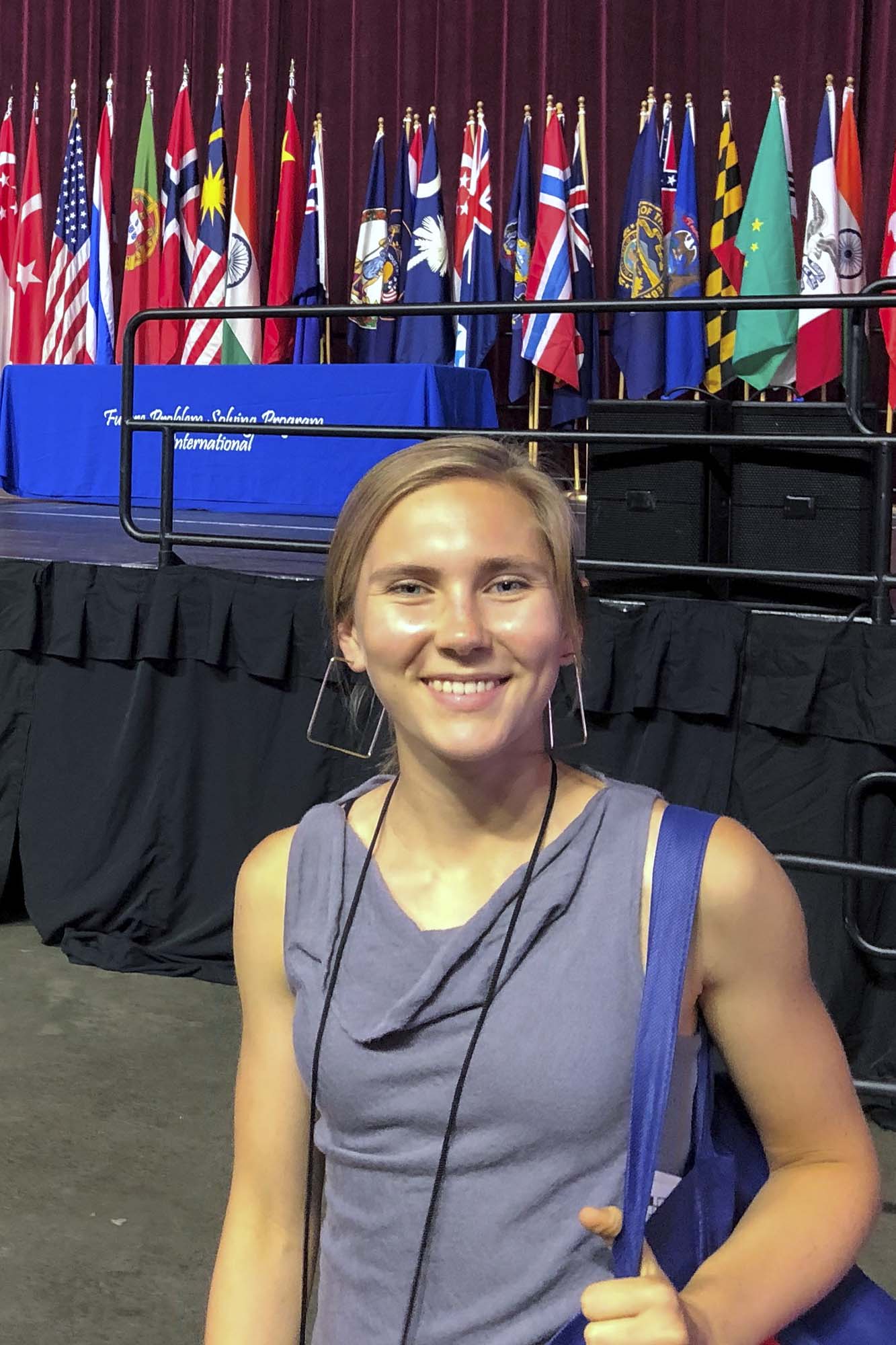
Research, writing, editing and design were just a few of the skills that Wiggins says she honed during her internship at SEWA Bharat in New Delhi. (Contributed photo)
“I was given the opportunity to exercise a range of skills, including research, writing, editing and design, and I was able to work with passionate individuals across the organization,” she said. “I truly felt as if I built friendships with my coworkers.
“I was empowered to explore fascinating themes such as migration, data justice, socio-environmental-economic linkages and global commercial flows.”
Eager to pursue a career in international development, student Leigh Mante said her internship at SEWA Bharat was valuable, in that it allowed her to be immersed in the daily inner workings of a global organization. “Partaking in this internship allowed me to explore the intersections of development theory and practice, providing new insights that I will carry with me in future UVA courses and experiences,” she said.
Alyssa Price, who also interned at SEWA Bharat, said she expected to gain skills in policy analysis, research and cross-cultural engagement (which she did), but the main thing she wound up learning was how to be a “protagonist for gender equality.”
“Achieving gender equality means much more than being paid the same,” Price said. “It means recognizing that women have equal capacity to learn, create and lead, and advocating for them to be given equal opportunity to do so.
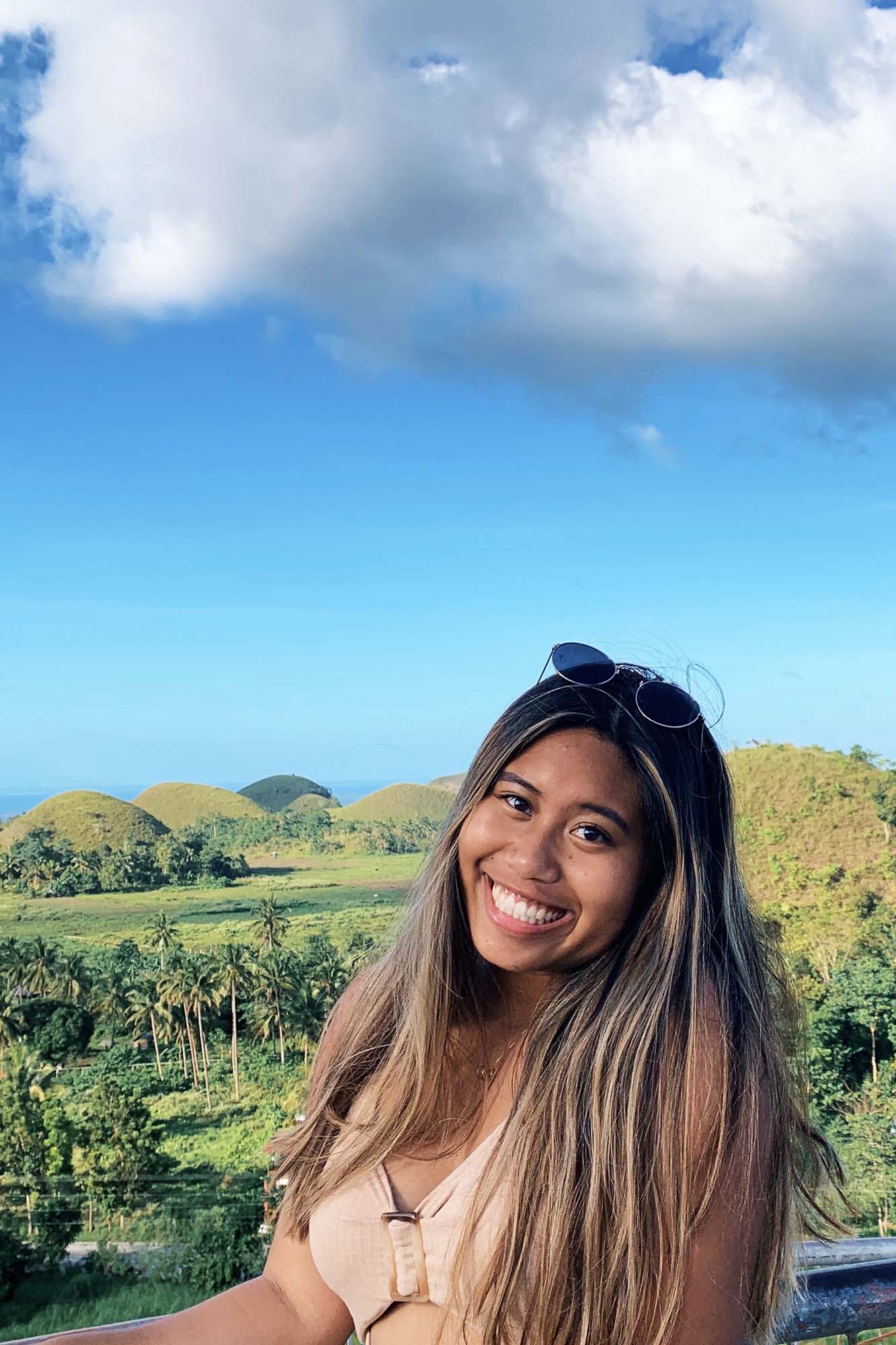
Mante hopes to pursue a career in international development. (Contributed photo)
“One supervisor at SEWA Bharat told me one of the biggest hurdles a woman faces is recognizing the importance of her role in society. Many SEWA employees spend their time educating women that they do add value to society and that their work matters. I was inspired by SEWA’s grassroots approach to solving women’s issues in India’s informal economy, because it showed me that elaborate plans are not the only pathway to women’s advancement; supporting women one-on-one can also lead to momentous changes.”
Several students elected to continue their internships after the program ended because they were learning so much and had established such strong relationships with their international colleagues.
In addition to the work they did for their supervisors and teams, students engaged in a global studies course called “Interning Abroad in Virtual Conditions,” which drew upon literature from the social sciences and humanities.
Overall, Hakala said the summer program went better than she could have ever imagined – so well, in fact, that the program plans to offer the same virtual internships (with the same partners) in the spring semester.
Hakala is the first to admit that real-life, human-to-human interaction can never be replicated, but she said remote international work is far from a “culture-less” experience.
“It requires diverse individuals to continually navigate differences with others to achieve shared goals,” she said. “The world will continue to be interconnected by disjointed global flows, and perhaps the disruptions of the present are especially useful means for illuminating these processes and outcomes.
“Even without travel, we can still seize opportunities to nurture our motivations to learn from and alongside others, gain knowledge of conditions in distant places, and respect the equal humanity of individuals beyond our national borders. There will always be relationships to build, perspectives to appreciate and experiences to embody, regardless of the mode of engagement.”
Media Contact
Article Information
September 28, 2020
/content/students-learn-unexpected-skills-through-virtual-internship-program

